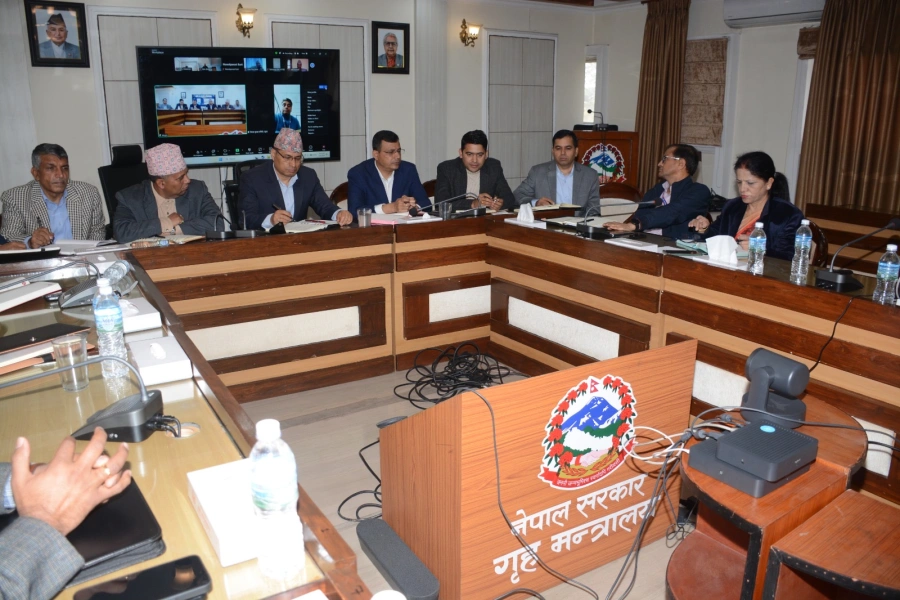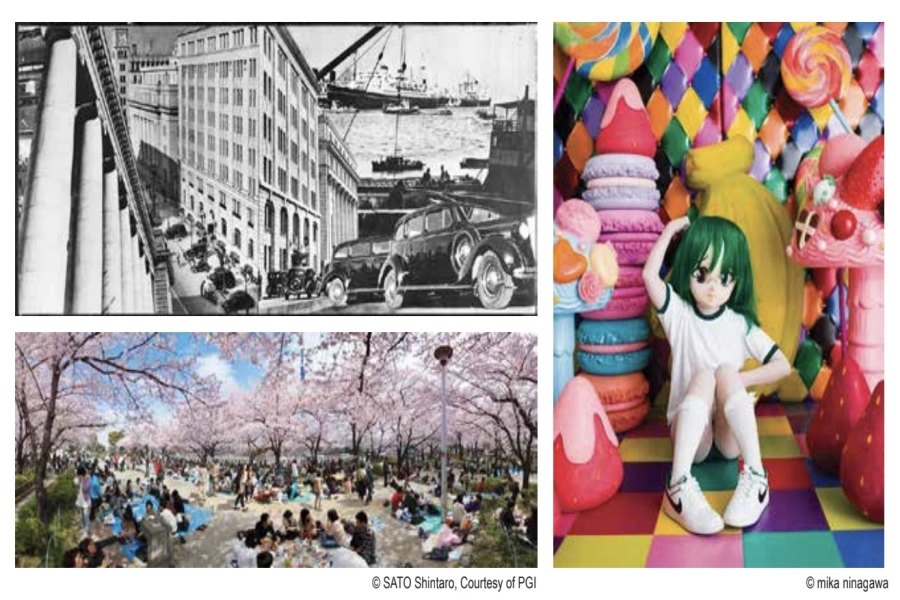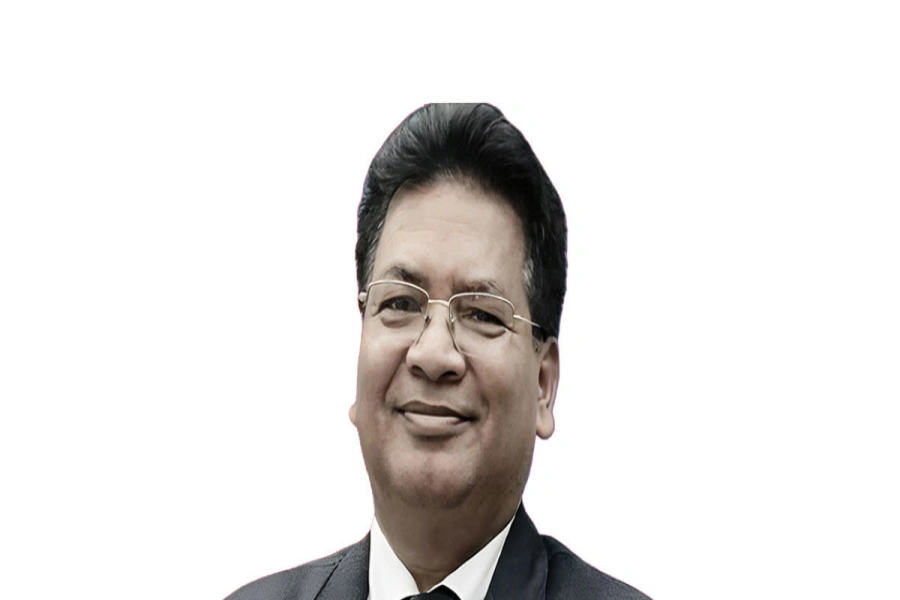KATHMANDU, Dec 14: A group of civil society members have expressed serious concerns over the ongoing attempts of foreign governments to subvert the mandate of the parliamentary elections held on November 20 in a way that would undermine the sovereignty of the people and representative democracy.
In a statement released on Wednesday, they have expressed concern over the unscrupulous horse-trading for government formation abetted by foreign intervention. They have cautioned that the formation of a new government engineered by foreign intervention will only deliver more unaccountable and corrupt governance, depriving the Nepali public of the fruits of political stability, economic growth, inclusion and equity.
“Under such unprincipled leadership, the economy is sure to crumble, the departure of Nepali youth to overseas employment will continue, even as the nation-state is weakened geopolitically. The faith of the public in the state and Constitution will be eroded,” reads the statement issued jointly by prominent civil society leaders Tirtha Man Shakya, Kul Chandra Gautam, Yubaraj Ghimire, Sushil Pyakurel and Kanak Mani Dixit.
The statement comes in the wake of frequent parleys of foreign ambassadors including the Indian envoy to the top political leaders of the ruling parties to form a new government of their likings. The statement, however, does not make any direct reference to the envoys concerned. The controversial move of Prime Minister Sher Bahadur Deuba to introduce an ordinance to pave the way to release convicted criminals from jails is seen as an attempt to engineer a new political dispensation of their interests.
The group of civil society members have maintained that the effort by one set of foreign governments to influence the formation of Nepal’s executive leadership, overtly showing their support for one side, is bound to trigger reaction from the other direction. "Nepal is thus in grave danger of becoming a geo-political football. We demand all neighbours and friendly countries follow the Panchsheel code in their dealings with Nepal, which includes the sacrosanct principle of non-intervention, overt or covert. Foreign intervention at any level is unacceptable even as Nepal strives to protect its historical neutrality shaped over the decades," reads the statement.
The fault lines of civil society

They have also demanded NC and the CPN-UML — the two parties which hold the overwhelming lead in members present in the newly-elected parliament-- to remain in consultation so that unhealthy deal-making and external dictates do not hijack the government formation. “The two largest parties must develop a common understanding on foreign relations, economic policy, social justice and constitutionalism, and the need to reject outside interference on domestic matters including government formation,” the statement further says.
Full text of the statement:
Citizens’ Statement on Election Mandate, Foreign Interest and Government Formation
14 December 2022, Kathmandu
We undersigned citizens wish to register our concern over the ongoing attempt to subvert the mandate of the parliamentary elections on 20 November 2022, in a way that would undermine the sovereignty of the people and representative democracy. At a time when the sitting of Parliament and formation of government through due process and established norms should be the next step for the elected representatives, frequent meetings between our top leaders and foreign diplomats sends ominous signals that voting by the electorate is not decisive.
While we are satisfied with the regularity of local, provincial and parliamentary elections achieved under the 2015 Constitution, a weakening of democracy is ongoing on the part of the topmost leaders desperate to cling to the power they have exercised for decades on end. The obstinacy of the leadership is evident even as results of the local, provincial and parliamentary elections of 2022 constituted an unprecedented call of the new generation for accountable government.
We are concerned that the unscrupulous horse-trading for government formation abetted by foreign intervention will only deliver more unaccountable and corrupt governance, depriving the Nepali public of the fruits of political stability, economic growth, inclusion and equity. Under such unprincipled leadership, the economy is sure to crumble, the departure of Nepali youth to overseas employment will continue, even as the nation-state is weakened geopolitically. The faith of the public in the state and Constitution will be eroded.
The fact that the electoral alliance of the Nepali Congress, Maoist Centre and others was not able to obtain a majority in Parliament indicates that this co-habitation of the ideologically divided parties was rejected by the voters. Further, a political party that has been sliding in every general election since 2008 should not be allowed to dictate terms to the largest party, and the country as a whole. For these reasons, we believe the Nepali Congress as the party with the largest number of MPs must seek to form government, approaching other democratic parties on common agenda outside the electoral alliance.
We call on the Nepali Congress and the CPN-UML, as the two parties which hold the overwhelming lead in Members present in Parliament, to remain in consultation so that unhealthy deal-making and external dictates do not hijack government formation. The two largest parties must develop common understanding on foreign relations, economic policy, social justice and constitutionalism, and the need to reject outside interference on domestic matters including government formation.
Unprincipled and unethical alliances hold the danger of weakening the state itself through inappropriate choice for the posts of President, Vice-President, Speaker and the heads and members of constitutional bodies. Such appointments will have long-term impact on constitutionalism and democracy itself. We also protest the reported suggestion to share the prime-ministerial position between two and even three individuals over five years. At this crucial juncture before the formation of government, we appeal to the President to act as conscience-keeper and not allow the country to be ruled in the interim by ordinances brought by a caretaker government.
The effort by one set of foreign governments to influence the formation of Nepal’s executive leadership, overtly showing their support for one side, is bound to trigger reaction from the other direction. Nepal is thus in grave danger of becoming a geo-political football. We demand all neighbours and friendly countries follow the Panchsheel code in their dealings with Nepal, which includes the sacrosanct principle of non-intervention, overt or covert. Foreign intervention at any level is unacceptable even as Nepal strives to protect its historical neutrality shaped over the decades.
Signatories:
Tirtha Man Shakya, Kul Chandra Gautam, Yubaraj Ghimire, Sushil Pyakurel, Kanak Mani Dixit






































